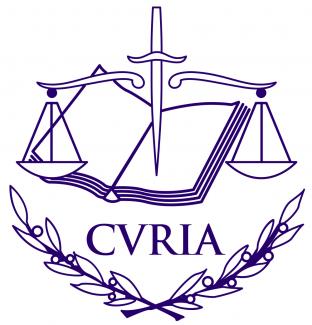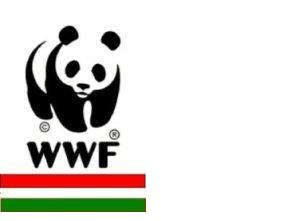Tax rulings: According to Advocate General Kokott, the Commission was right to consider that the Belgian practice of making downward adjustments to profits of undertakings forming part of multinational groups constituted an aid scheme
The judgment of the General Court of the European Union to the contrary should be set aside and the General Court should rule again on the actions brought by Belgium and Magnetrol International
From 2004 to 2014, the Belgian tax authorities made downward adjustments, by way of tax rulings, to the taxable profits of a total of 55 Belgian resident undertakings forming part of multinational groups; this is also referred to as an excess profit exemption. The adjustments were made on the basis of a provision of the Belgian Income Tax Code pursuant to which, in accordance with the internationally accepted arm’s length principle, profits may be adjusted between two undertakings belonging to the same group if the conditions agreed between them were not the same as those which would have been agreed between independent undertakings.
According to the Commission, however, it was not remuneration for services between two associated undertakings that was reassessed by means of the arm’s length principle, as provided for in the Income Tax Code; rather, the Belgian tax authorities compared, independently of such services, the profit of the undertaking forming part of a ‘cross-border group’ with the hypothetical profit of a non-associated undertaking, by estimating the hypothetical average profit that a standalone undertaking carrying out comparable activities would have generated in comparable circumstances. That amount was then subtracted from the profit actually recorded by the relevant Belgian undertaking forming part of an international group of undertakings. The difference represented the tax-exempt excess profit, which could be secured by means of an advance ruling.
For such an advance ruling to be obtained, it was sufficient for a request to be made to that effect and for the profits to be linked to a new situation, such as a reorganisation leading to the relocation of a central entrepreneur to Belgium, the creation of jobs, or the making of investments. The Belgian authorities even advertised the possibility of obtaining such a tax exemption in respect of excess profits.
By decision of 11 January 2016, 1 the Commission found that this practice on the part of the Belgian tax authorities constituted an aid scheme 2 that was incompatible with the internal market and that had also been unlawfully put into effect, since it had not been notified to the Commission. In addition, the Commission ordered that the aid granted be recovered from the beneficiaries, a definitive list of which was to be drawn up by Belgium at a later stage. 3
Following actions brought by Belgium and Magnetrol International, the General Court of the European Union, by judgment of 14 February 2019, 4 annulled the decision of the Commission. It held that the Commission’s finding of the existence of an aid scheme was incorrect. In particular, the Commission had not reviewed all the advance tax rulings issued, but only a sample of them. Thus, according to the General Court, the Commission had failed to prove that the Belgian tax authorities had followed a systematic approach in all the advance tax rulings.
The Commission lodged an appeal with the Court of Justice against the judgment of the General Court. Belgium lodged a cross-appeal, criticising the General Court for having rejected any encroachment upon its tax jurisdiction.
In her Opinion delivered today, Advocate General Kokott proposes that the Court of Justice set aside the judgment of the General Court, on the ground that the Commission has, contrary to the findings of the General Court, sufficiently demonstrated in its decision that the Belgian practice of making downward adjustments to profits of undertakings forming part of multinational groups meets the conditions for the existence of an ‘aid scheme’.
As a preliminary point, the Advocate General states that the subject of the present appeal is not the question whether the advance tax rulings at issue actually constitute, as the Commission found, prohibited aid. Rather, the subject of the appeal is merely the question whether, and if so, under what conditions, the Commission can object to a large number of such tax rulings ‘as a package’ as being an aid scheme. The great practical importance of this question is illustrated inter alia by the fact that the present case is a pilot case. 28 further actions by beneficiaries of the alleged aid are currently stayed.
As regards the first of the three conditions for the existence of an aid scheme, namely that there must be an act, the General Court, contrary to what the Commission asserts, did not rule out the possibility that a consistent administrative practice may constitute such an act. Rather, the General Court merely stated that the Commission had not demonstrated any consistent administrative practice. However, the General Court interpreted the legal requirements for what constitutes sufficient demonstration too narrowly.
According to the Advocate General, the Commission may also use a sample for the purposes of proving a consistent administrative practice. Contrary to the view of the General Court, the Commission sufficiently demonstrated in its decision that its sample is representative overall and thus sufficient for the purposes of proving a consistent administrative practice. In addition, the General Court was wrong to consider that the two further conditions for the existence of an aid scheme (namely, that no further implementing measures are required and that the beneficiaries are defined in a general and abstract manner) were not met.
Advocate General Kokott proposes that the case be referred back to the General Court. The General Court must still assess whether the advance tax rulings concerning the downward adjustment of profits constitute really State aid and whether the recovery of the alleged aid infringes, in particular, the principles of legality and of the protection of legitimate expectations.
The Advocate General considers the cross-appeal lodged by Belgium to be inadmissible, on the ground that Belgium lacks an interest in bringing an appeal. This is because the Court of Justice will either dismiss the Commission’s appeal and the annulment of the decision of the Commission will become final as a result – fully in line with Belgium’s aims – or refer the case back to the General Court. The Court of Justice would only rule on Belgium’s submissions concerning the tax jurisdiction of the Member States in a further appeal.
1 Commission Decision (EU) 2016/1699 on the excess profit exemption State aid scheme SA.37667 (2015/C) (ex 2015/NN) implemented by Belgium (OJ 2016 L 260, p. 61).
2 Within the meaning of Article 1(d) of Council Regulation (EU) 2015/1589 of 13 July 2015 laying down detailed rules for the application of Article 108 TFEU (OJ 2015 L 248, p. 9).
3 However, the annex to that decision identifies 55 beneficiaries, including Magnetrol International NV, Soudal BV, Esko-Graphics BVBA, Flir Systems Trading Belgium BVBA, Anheuser-Busch InBev SA/NV, Ampar BVBA, Wabco Europe BVBA, Atlas Copco Airpower NV, Atlas Copco AB and Celio International NV.
4 Judgment of the General Court of 14 February 2019, Belgium and Magnetrol International v Commission (T-131/16 and T-263/16, see also Press Release No 14/19).
curia.europa.eu

















